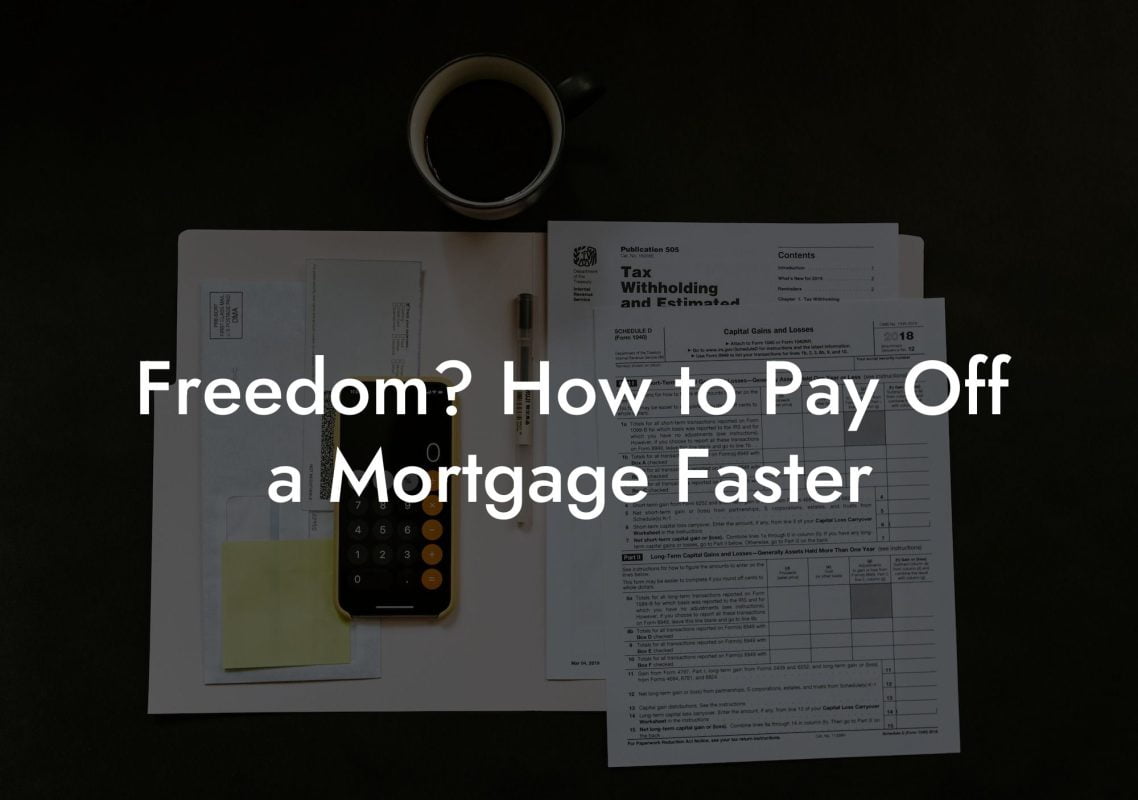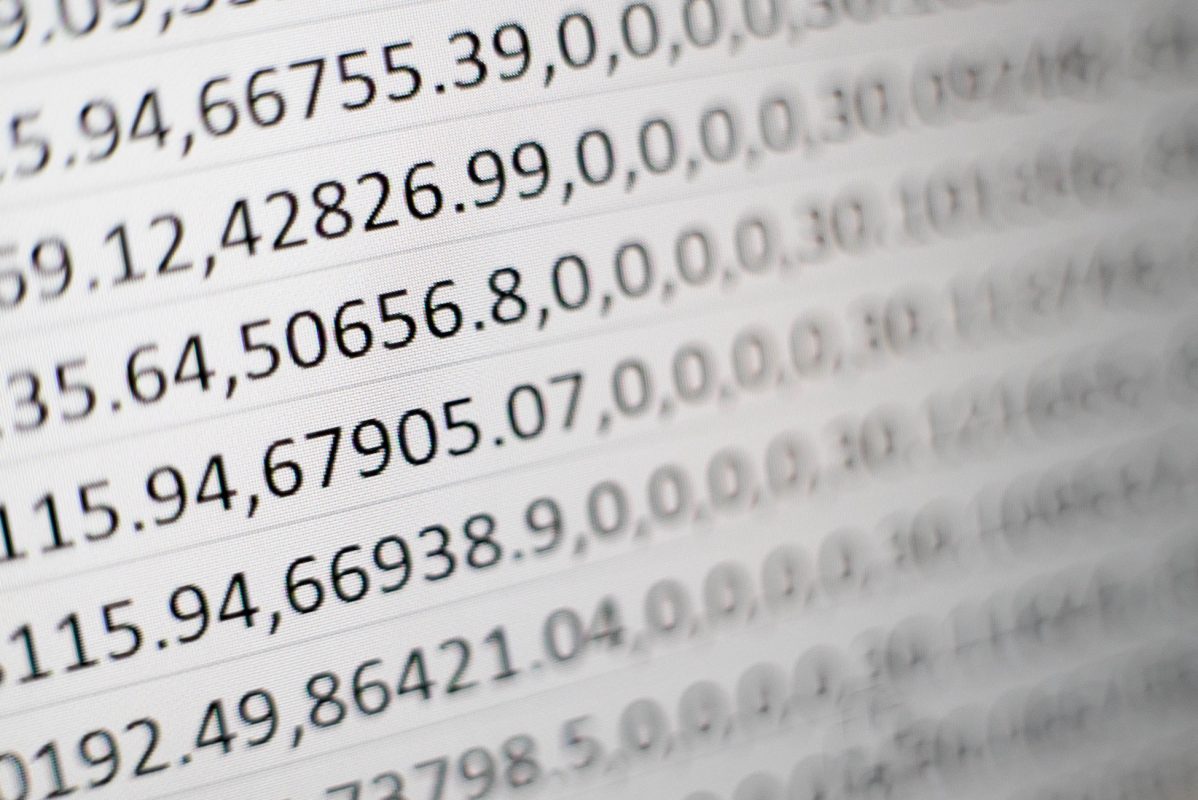Ready to dive into the world of home financing with a twist of humor? Let’s embark on a journey comparing two popular loan programs—Homeready and FHA—that can help you purchase your dream home without draining your avocado toast fund! We’re breaking down the nitty-gritty details in an engaging, straight-talk style designed especially for millennials and Gen Zers who crave savvy financial decisions without all the snooze-worthy jargon.
Homeready Vs FHA Table of Contents
Understanding the Basics: Homeready and FHA Explained
Homeready: A Fresh Spin on Home Financing
Comparing the Contenders: Homeready vs FHA
Real-World Scenarios: When Each Program Might Be Right for You
Breaking Down the Numbers: A Closer Look at Costs and Rates
Beyond the Loan: The Community and Educational Edge
Resources and Community Support: Your Next Steps
Which Program is Right for You? Making the Final Decision
Future Trends in Home Financing: The Evolution of Loan Programs
Homeready vs FHA: A Recap for the Modern Homebuyer
Understanding the Basics: Homeready and FHA Explained
Before you can pick a side in the ultimate Homeready vs FHA showdown, it’s crucial to understand what these programs actually are. In one corner, we have the Fannie Mae HomeReady loan—a program designed with flexibility in mind for low-to-moderate income borrowers. In the other, the Federal Housing Administration (FHA) loan—a longer-established option backed by the government and known for its low down payment requirements.
The Homeready mortgage is all about expanding homeownership through reduced mortgage insurance rates, flexible sources for down payments, and a focus on building community in underserved areas. Meanwhile, an FHA loan is geared towards making home buying accessible with lenient credit score requirements and low upfront costs. Both serve as excellent gateways for first-time buyers and those with less-than-perfect credit, but each comes with its own set of benefits and potential drawbacks.
As you explore these two options, get ready to weigh factors such as eligibility requirements, credit score thresholds, down payment expectations, interest rates, and mortgage insurance premiums. Whether you’re saving up from your side hustle earnings or exploring creative funding options, this guide is here to demystify the differences so you can confidently choose the path that best fits your financial goals.
Delving into FHA Loans
Let’s start with the FHA loan—a financial product that has been around since the Great Depression (okay, a slight exaggeration, but it’s been around for decades) and has helped millions of Americans snag their first home. The FHA loan is ideal if you’re looking to overcome credit hurdles or have a limited down payment saved up.
Key Features of FHA Loans
FHA loans come with some noteworthy perks:
- Low Down Payment: You can often get approved with as little as 3.5% down, easing the pressure on your savings account.
- Lenient Credit Score Criteria: A credit score as low as 580 might qualify you, making FHA loans attractive for first-time buyers or those rebuilding credit.
- Government Backing: With FHA backing, lenders face less risk, which means they can offer more flexible terms.
- Streamlined Refinancing Options: If you find a better deal later, FHA loans often provide smoother refinancing processes.
These benefits make the FHA loan one of the go-to options if you’re juggling student loans or have had a few credit mishaps in your past. However, no program is perfect, and FHA does have its quirks.
Potential Limitations of FHA Loans
FHA loans might not be for everyone. Here are some downsides you might encounter:
- Mortgage Insurance Premiums (MIP): While the upfront costs can be low, FHA loans require both an upfront mortgage insurance premium and ongoing monthly payments that can last the life of the loan.
- Loan Limits: FHA loans have borrowing limits that vary by region. If you’re eyeing a premium property, this option might not stretch far enough.
- Property Standards: Properties purchased with an FHA loan must meet strict safety and livability requirements, which could complicate renovations or buying fixer-uppers.
Despite these limitations, the FHA loan remains a staple for buyers seeking accessibility and affordability. If traditional financing avenues seem out of reach, an FHA loan might just be your golden ticket to homeownership.
Homeready: A Fresh Spin on Home Financing
Enter Homeready—a program that brings modern twists to the classic mortgage landscape. Developed by Fannie Mae, Homeready loans are designed to cater to a broader range of financial profiles, with an emphasis on community investment and more flexible options for down payments.
What Makes Homeready Unique?
Homeready loans are all about modern efficiency and a human-first approach. Here’s what sets them apart:
- Flexible Income Requirements: Homeready isn’t just for the super-rich or the traditionally creditworthy. It’s open to low- and moderate-income buyers, making it an inclusive option for many first-timers.
- Low Mortgage Insurance Costs: Compared to FHA loans, Homeready can offer lower mortgage insurance premiums, which means more money stays in your pocket.
- Alternative Documentation: Homeready allows flexible sources of income documentation, meaning you can use non-traditional income streams—like freelancing or gig economy earnings—to qualify.
- Homeownership Education: Many Homeready programs include mandatory homebuyer education, giving you essential tools and knowledge to manage your finances long term.
Homeready is particularly attractive to buyers who want a more tailored financing option that adjusts to today’s economic realities—in other words, it’s for those who want a mortgage that feels as flexible as their career paths.
Potential Drawbacks of Homeready
Of course, while Homeready offers numerous benefits, it’s not without potential challenges:
- Income Limits: Homeready programs impose income ceilings to target low to moderate incomes. If you earn well above these limits, you might not qualify.
- Property Eligibility Standards: Like FHA, properties must meet specific standards for Homeready financing, potentially limiting options if you’re on the hunt for a fixer-upper.
- Availability: Not every lender offers Homeready loans, so your choices might be more limited compared to FHA options.
Homeready’s modern twist on home financing is perfect for those who appreciate flexibility and lower mortgage insurance premiums. If you’ve been hustling in the gig economy, or your financial portfolio isn’t exactly traditional, Homeready might be just the right fit.
Comparing the Contenders: Homeready vs FHA
Now that we’ve unpacked both options individually, it’s time to compare Homeready and FHA head-to-head. Think of it as the ultimate financial rap battle—except instead of beats, we’re spitting facts about credit scores and down payments.
Down Payment Requirements
Both programs are low down payment heroes, but they differ in subtle ways. FHA loans typically require as little as 3.5% down, making them accessible if you’ve got just a bit of cash saved up. Homeready also boasts low down payments, often around the same percentage, but its flexibility in allowing different forms of funding (including gifts and community assistance) can tip the scales for some borrowers.
Credit Score Criteria
Credit scores can be the bane of many a home buyer’s existence. FHA loans are known for their leniency, accepting scores as low as 580, and sometimes even lower with higher down payments. Homeready, while still accommodating, tends to favor slightly higher credit scores, often encouraging stronger financial profiles. It’s all about that balance between risk and reward.
Mortgage Insurance
Mortgage insurance might be the least fun part of borrowing money, but it’s essential to consider. FHA loans require both an upfront premium and monthly mortgage insurance payments that can continue for the life of the loan—unless you refinance. Homeready, on the other hand, often offers lower mortgage insurance premiums, which can mean long-term savings. If you enjoy watching your savings grow (and who doesn’t?), Homeready might have the edge here.
Income Restrictions and Documentation
Homeready is purpose-built for low- to moderate-income buyers and includes income limits designed to benefit those who might otherwise be left on the financial sidelines. FHA loans don’t impose these income restrictions, broadening their appeal. However, Homeready’s flexibility in documenting non-traditional income sources (think side gigs, freelance work, and the unpredictable freelance hustle) makes it especially appealing to a younger, tech-savvy audience.
Loan Limits and Property Eligibility
Both FHA and Homeready loans have loan limits that vary by region, influenced by local real estate markets. FHA loan limits are strictly defined by the HUD, while Homeready limits are set by Fannie Mae and may offer more flexibility in some areas. For buyers eyeing properties in urban markets versus suburban retreats, comparing these limits is key to selecting the best program.
Refinancing Options and Long-Term Flexibility
When your financial situation improves (or when you catch that perfect market opportunity), refinancing is on most homeowners’ radars. FHA loans have streamlined refinancing options, though the lingering monthly mortgage insurance premiums can sometimes hinder long-term savings. Homeready loans, with their generally lower mortgage insurance costs and modern underwriting guidelines, can offer more attractive refinancing outcomes for certain borrowers.
Community and Educational Support
An often-overlooked benefit of the Homeready program is its emphasis on homebuyer education and community support. This built-in educational component ensures that buyers are equipped with the necessary knowledge and tools for successful homeownership. FHA loans, while robust in offering homeownership opportunities, typically don’t come with the same level of mandated buyer education, making Homeready particularly appealing if you’re a first-time buyer wanting to hit the ground running.
In summary, while FHA loans score high on accessibility and credit leniency, Homeready shines with flexibility, innovative income documentation, and lower long-term mortgage insurance costs. Your decision ultimately hinges on your personal financial situation, income level, credit profile, and how you plan to manage your mortgage in the long run.
Real-World Scenarios: When Each Program Might Be Right for You
Let’s break down some typical scenarios where one program might edge out the other, making your decision process as smooth as possible.
Scenario 1: The Credit-Challenged First-Time Buyer
Meet Alex—a bright, ambitious first-time homebuyer who has battled credit issues due to a few past financial missteps. With a credit score hovering in the low 600s and a modest down payment saved from part-time gigs, Alex finds an FHA loan to be a perfect match. The lenient credit score criteria and the relatively low down payment requirement help overcome the credit hurdles. Although the upfront and ongoing mortgage insurance may raise an eyebrow, the prospect of finally owning a home outweighs the extra monthly cost.
Scenario 2: The Gig Economy Maven
Then there’s Jamie—a digital nomad with multiple income streams from freelancing, influencer collaborations, and sporadic side hustles. Jamie’s income, although inconsistent, is well-documented through alternative documentation accepted by Homeready programs. With a flexible approach to income verification and a lower mortgage insurance premium, Homeready offers a tailored solution that fits Jamie’s modern financial lifestyle. Homeownership becomes a tangible goal without having to conform strictly to conventional employment standards.
Scenario 3: The Savvy Long-Term Investor
Now, consider Taylor—a pragmatic homeowner who plans to eventually invest in multiple properties. Taylor’s primary concern is keeping long-term costs low. While an FHA loan might have been on the table initially, the perpetual annual mortgage insurance premiums soon tip the scales in favor of Homeready’s more affordable insurance options. The additional support of homebuying education and community resources further sweetens the deal, ensuring that Taylor remains an informed, savvy investor well into the future.
Scenario 4: The Dreamer on a Budget
Lastly, we have Morgan—an aspiring homeowner who’s been diligently saving but still feels the pinch of rising real estate costs. Morgan’s modest income fits perfectly within the Homeready income guidelines, and the program’s flexibility means that even with creative income documentation, qualifying for a mortgage is within reach. With lower mortgage insurance costs and a built-in network of educational resources, Homeready not only makes homeownership achievable but does so in a way that feels supportive and modern.
Whether you relate more to Alex’s credit recovery journey, Jamie’s non-traditional income streams, Taylor’s investment mindset, or Morgan’s budget-conscious dream, you can find a home financing program that aligns with your lifestyle and financial aspirations.
Breaking Down the Numbers: A Closer Look at Costs and Rates
At some point, every potential homebuyer faces the ultimate showdown: understanding the numbers. Let’s break down key cost components to help you decide between Homeready and FHA.
Interest Rates and Loan Terms
Interest rates often vary based on your credit profile and the lender’s environment. FHA loans tend to offer competitive rates, especially for those with lower credit scores. Homeready, on the flip side, benefits from modern underwriting that can sometimes secure lower rates if you have stronger documentation of income. However, market conditions, lender specifics, and individual credit performance always play a major role in determining your rate.
Closing Costs and Fees
Both FHA and Homeready loans come with closing costs that can include appraisal fees, origination fees, and other miscellaneous expenses. FHA loans often feature an upfront mortgage insurance premium (UFMIP) that adds to your initial costs, while Homeready might have slightly lower insurance-related fees. Comparing these costs side by side with your lender is key—think of it as doing a price comparison for your favorite streaming service plan.
Monthly Mortgage Insurance
When it comes to monthly mortgage insurance, FHA loans tend to be a bit of a long-haul commitment. You might be paying these premiums for the life of the loan, unless you meet certain criteria or decide to refinance. Homeready, on the contrary, usually offers lower monthly premiums that can free up extra cash for other life adventures—like finally booking that spontaneous weekend getaway.
Long-Term Financial Impact
Weighing the immediate benefits against the long-term financial impact is crucial. While FHA loans may provide easier initial access due to lower credit score requirements, Homeready might offer a more cost-effective solution over a 30-year term with its lower insurance fees and flexible documentation terms. It’s all about running the numbers and visualizing your journey as a homeowner without placing undue stress on your budget.
Taking a holistic look at the figures can help you decide which loan program aligns with your future financial wellbeing. Whether you prioritize the short-term ease of an FHA loan or the long-term savings potential of Homeready, the correct choice will ultimately be the one that complements your financial journey.
Beyond the Loan: The Community and Educational Edge
Financing your home is just one piece of the puzzle. Both Homeready and FHA programs offer additional avenues of support that extend far beyond mere dollars and cents.
Homeready, in particular, emphasizes homebuyer education and community outreach. Programs under Homeready often come with mandatory educational courses that provide practical tools on budgeting, home maintenance, and long-term financial planning. This educational component empowers buyers to navigate the ups and downs of homeownership with insight and confidence.
FHA loans, while robust in facilitating access to homeownership, tend to focus less on these supportive community initiatives. However, many state and local housing agencies fill the gap by offering complementary courses and counseling services for buyers with FHA loans.
For the modern buyer who values community, learning, and a sense of belonging, Homeready can feel like a loan with extra perks—one that not only opens the door to your new home but also invites you to become part of a larger network dedicated to sustainable, informed homeownership.
Resources and Community Support: Your Next Steps
Deciding between Homeready and FHA can seem like choosing between your favorite artisanal latte flavors—each has its unique zest and appeal. As you lean into your home financing journey, remember that information is power, and the right resources can elevate your decision-making process.
Here are some resources and next steps to guide you:
- Credit Counseling Services: Enlist the help of reputable organizations that can review your credit history and provide tailored advice on boosting your score for better mortgage rates.
- Local Housing Agencies: Many government and nonprofit agencies offer workshops and one-on-one counseling sessions. They can help you understand the intricacies of FHA and Homeready loans, ensuring that you’re well-informed before signing on the dotted line.
- Online Calculators and Comparison Tools: Use modern online tools to simulate different scenarios based on your financial outlook. Mortgage calculators that compare down payments, interest rates, and monthly costs can be your best friend when navigating these waters.
- Lender Consultations: Set up meetings with multiple lenders to assess who can best cater to your financial situation. Ask them directly about the differences between Homeready and FHA options, and don’t be afraid to request clarity on points that seem confusing.
- Homebuyer Education Courses: If offered as part of a Homeready program, these courses may provide invaluable insights into the homebuying process—from budgeting to property maintenance, they equip you with real-world knowledge that goes beyond the numbers.
By tapping into these community and educational resources, you not only arm yourself with essential information but also join a network of like-minded buyers who are working towards the same goal: unlocking financial freedom and homeownership.
Which Program is Right for You? Making the Final Decision
The Homeready vs FHA debate might feel like choosing between two tasty, yet distinct, financial smoothies—you have to consider your taste, lifestyle, and nutritional needs (in this case, your financial profile and future goals). Ultimately, the decision boils down to these key factors:
- Your Credit History: If your credit score is on the lower side and you need that extra bit of flexibility, an FHA loan might be the safer bet.
- Your Income Profile: For those juggling multiple income streams or working in the gig economy, Homeready’s alternative documentation requirements can be highly advantageous.
- Long-Term Financial Goals: Are you seeking immediate approval despite higher insurance costs, or would you prefer a program that offers lower long-term costs? Consider whether you envision building wealth slowly over time or need quick access to homeownership.
- Community and Educational Support: Do you value structured, built-in buyer education and community outreach? If so, Homeready might be more appealing, as it invests in your overall financial literacy beyond just the mechanics of a loan.
- Property Type and Location: The type of property you’re interested in and its location may affect which program is more accessible. Familiarize yourself with regional loan limits and property standards to ensure your dream home fits within the criteria of your chosen program.
Take the time to evaluate your personal financial story and weigh the pros and cons of each option. Consult with experienced professionals, and lean on community resources to enhance your understanding. Ultimately, your decision should empower you to build a foundation for lasting financial wellness and homeownership.
Future Trends in Home Financing: The Evolution of Loan Programs
The home financing landscape isn’t static. Much like the trends in tech and pop culture, mortgage products continually evolve to meet the changing needs of buyers. Both the Homeready and FHA programs have undergone adjustments in recent years to better serve a broader range of borrowers.
Innovations in online application processes, greater transparency in underwriting, and streamlined refinancing options are just the tip of the iceberg. The future may hold even more flexible documentation requirements and dynamic mortgage products that are tailored to the modern economy—with augmented digital tools that help you monitor and manage your mortgage like a pro.
For the digitally native millennial and Gen Z buyers, keeping an eye on these trends is key. Staying informed about new policy amendments, grant programs, and financial tools will help you navigate an ever-changing homebuying environment with confidence. And who knows? Maybe the next breakthrough in home financing will be just as revolutionary as the smartphone.
Homeready vs FHA: A Recap for the Modern Homebuyer
In the end, both Homeready and FHA loans offer viable paths to homeownership, each appealing in its own right. FHA loans are celebrated for their ease of entry and credit leniency, making them a reliable ally for buyers struggling with credit challenges. Conversely, Homeready brings a modern, flexible approach—ideal for those juggling unconventional income sources and seeking long-term savings through lower mortgage insurance premiums.
As you stand at the crossroads of home financing, remember that your decision should reflect your unique financial reality and future goals. Whether you team up with FHA or embrace the innovative spirit of Homeready, you’re taking a giant step toward building wealth and achieving financial freedom—all while preserving your lifestyle and sense of adventure.
The ultimate choice is yours. With a little research, honest self-reflection, and access to robust resources, your homeownership dreams can transform from a distant fantasy to a smart, achievable reality.
Homeready vs FHA FAQs: Your Top Questions Answered
We know there can be lingering questions about these two programs. Here are some of the most frequently asked questions to help clear up any remaining confusion.
1. What is the primary difference between Homeready and FHA loans?
Homeready loans are designed to cater to low- to moderate-income borrowers with flexible income documentation and lower mortgage insurance premiums, while FHA loans focus on offering lenient credit requirements with a fixed low down payment option.
2. Which program is better for someone with a lower credit score?
FHA loans generally accept lower credit scores (often around 580 or sometimes even lower with a larger down payment), making them a favorable option for buyers with credit challenges.
3. Are the down payment requirements significantly different between the two?
Not dramatically—both programs typically require around 3% to 3.5% down. However, Homeready offers more flexibility by allowing alternative sources for down payment funding, which might appeal to buyers with non-traditional income sources.
4. How do mortgage insurance costs compare?
FHA loans require both an upfront premium and ongoing monthly payments that can sometimes last the life of the loan. Homeready, on the other hand, often provides lower mortgage insurance premiums, which can result in lower long-term costs.
5. What about property and loan limits?
Both FHA and Homeready loans come with property and loan limits that vary by region. It’s important to check the local limits in your area to see which program offers better flexibility for your desired property.
6. Can I refinance one of these loans if my financial situation improves?
Yes, both FHA and Homeready loan programs offer refinancing options. However, each has its own guidelines and terms regarding when and how you can refinance, so it’s essential to consult with your lender.
7. Which program is best for gig economy workers?
Homeready is often more accommodating for gig economy workers because it allows non-traditional income documentation, making it easier to qualify despite fluctuating income patterns.
8. Are there any educational benefits associated with either program?
Homeready loans typically include a compulsory homebuyer education component designed to help you navigate homeownership more confidently, whereas FHA loans do not require such courses.
9. How will market conditions affect my decision?
Market conditions, including interest rates and local real estate trends, can influence the overall cost of each loan option. It’s important to evaluate both your personal financial profile and current market dynamics before making a final decision.
10. Who should I contact for personalized advice?
Consult with a trusted mortgage lender or financial advisor who specializes in government-backed loans. They can help evaluate your specific needs and guide you through the application process.
Your Path Forward: Empowering Your Homeownership Journey
Deciding between Homeready and FHA is not just about crunching numbers—it’s about aligning your financial future with your lifestyle, dreams, and the values you hold dear. With a clearer understanding of each program’s strengths and challenges, you’re now armed with the insights necessary to make a confident choice.
Remember, the perfect mortgage for you is one that fits your personal financial narrative and supports your long-term goals. Whether you favor the flexible, community-centered nature of Homeready or the credit-friendly, accessible approach of FHA loans, you’re taking a huge step toward building financial independence.
So, go ahead and explore your options. Reach out to experienced lenders, dive into educational courses, and get plugged into community resources that empower modern homebuyers. With the right guidance and a clear financial strategy, that dream home is closer than you think.
Embrace the process, ask questions, and trust your savvy judgment. The journey might be challenging at times—but every step you take brings you closer to unlocking a future of financial stability and personal growth. Happy house hunting!













